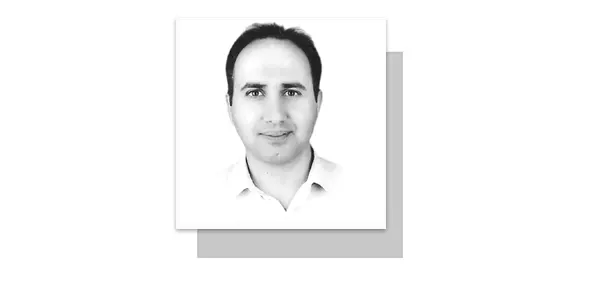PAKISTAN owes its creation to the leadership and vision of Quaid-i-Azam who by ‘Unity, Faith and Discipline’, converted Muslim nation into a dynamic force that swept the sub-continent and altered the destinies of a human race by laying the foundation of the second biggest Muslim state, an achievement without parallel in the annals of civilization. Whatever little time he had after independence, the Quaid tried hard to run the affairs of Pakistan, to pass on this commitment as his legacy to the leadership and citizens of the new nation. Mr. Jinnah was something more than Quaid-i-Azam, supreme head of the state, to the people who followed him. He commanded their imagination as well as their confidence. With his unusual powers of persuasion, luminous exposition, searching arguments and sound judgment, the Quaid was able to win the battle for Pakistan. Throughout his career as a politician and a legislator, his dedication to the rule of law and constitutionalism was unswerving. For over seven decades, his successors have yet to fully realize these values.
It is not as if there has been no progress and development. No country ever wholly stagnates. We have progressed in many fields. We have become a nuclear power. Our economy has expanded. The cities of the Quaid’s days have grown beyond belief, and glittering new palaces have come up everywhere. It would have been impossible to stand still for seven decades but the benefits of development have been unevenly spread, and mostly have accrued to the privileged classes. For years together we have functioned without the benefit of constitutional governance. Regrettably the legacy of Quaid and the expectations were betrayed time and again, leaving behind the bleakness of the life of the ordinary people and the monotony of the political landscape. Will there be a genuine shift in mindset and direction? To effect meaningful change, a commitment to universal accountability, austerity measures and effective governance is essential. Key reforms such as tax system overhauls, pro-poor policies and fostering amicable relations with neighbouring countries are crucial for progress. There has to be a future for Pakistan beyond all the skulduggery of the past and the present. We have weakened Quaid’s ideals to the extent that their relevance is questioned today. However, it would be a grave error to abandon his faith in democracy as the rightful path for Pakistan. Our frequent deviations from universal principles risk making us seem out of touch with global progress towards political and social development.
Today, we need a national consensus grounded in the principles of our founding fathers and informed by our 77 years of experience to determine our future direction. A new era is upon us, marking the beginning of a fresh chapter for Pakistan. The nation has embraced the vision of ‘Emerging Pakistan,’ which the Prime Minister describes as a revival of Jinnah’s original vision. Emerging Pakistan’s ambition is for the nation to become a welfare state, modelled after the successful examples of Scandinavian countries. In this future, citizens will have the power to shape their own destinies, with political and economic autonomy at their disposal. Policing will be non-partisan and justice will be swift and of high quality, facilitated by comprehensive judicial reforms. Emerging Pakistan envisions a revival of both industrial and agricultural sectors, with enhanced job opportunities, solutions to electricity and water shortages and a restoration of law and order. Economic stability will be achieved alongside educational reforms in schools, religious seminaries and vocational training centres. Additionally, a strengthened foreign policy will be pivotal. This vision reflects the aspirations of the people and aligns with the goals outlined in the PML-N manifesto.
Pakistan needs to ensure that all its constituent units have a significant stake in the country’s strength and vitality. This involves fostering economic development in underdeveloped regions and implementing a thorough devolution of powers from the central government to local authorities. To achieve greater stability and cohesion, Pakistan must define its political direction and identity, aligning with Quaid-e-Azam’s vision of a modern nation-state grounded in constitutionalism, the rule of law, ethical governance and social and economic justice. The journey requires active citizen participation, characterized by impartiality, tolerance, understanding, empathy and openness to diversity. Progress depends on a collective attitude upholding core principles such as ethics, integrity, responsibility, diligence and punctuality. A renewed commitment and proactive approach are needed to move forward.
On this 14 August, let us unite in our commitment to strengthen Pakistan. To enrich our nation’s standing and earn greater respect on the global stage, we must prioritize economic diversification, focusing on technology, services and manufacturing, while investing in infrastructure to support business and trade. It’s crucial to implement anti-corruption measures, enhance judicial processes and decentralize power to improve service delivery and institutional trust. We should invest in quality education, vocational training and research to develop skills and innovation. Healthcare must be improved, especially in underserved areas, with a focus on preventive measures and public health initiatives. Social inclusion and equality must be advanced through policies supporting women’s participation in the workforce and protecting minority rights. Addressing environmental sustainability through responsible practices and better resource management is essential. Additionally, fostering regional cooperation and trade agreements will enhance stability, while robust measures against terrorism and extremism will ensure a secure environment for economic and social progress. By embodying the principles of unity, faith, discipline and care for all communities, as envisioned by Quaid-i-Azam, Pakistan can become a stronger, more respected member of the international community.
—The writer is PhD in Political Science and visiting faculty member at QAU Islamabad.










